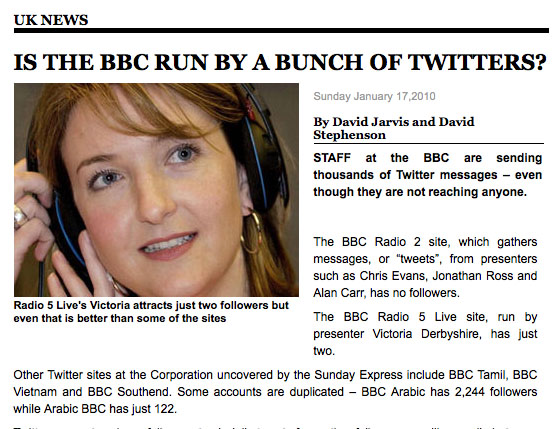The Los Angeles Times has reported some pretty impressive traffic figures recently – in fact LATimes.com managing editor Jimmy Orr says it is the only major newspaper website in the US to be increasing in traffic.
Speaking to Journalism.co.uk Orr reported that for the six months from March to August 2011 the site saw a 33 per cent increase in page views, a 30.1 per cent increase in unique users and a 74 per cent rise in traffic from Google, when compared with the same period last year.
Nieman Lab has written about what it sees as several contributing factors to this success, such as the integration of Facebook’s commenting system, “a full embrace of blogging”, plus the addition of a new SEO chief, Amy Hubbard. In an interview with Journalism.co.uk Orr explained exactly what Hubbard’s role entails, which is overall to ensure journalists’ work gets read.
We do ourselves a disservice if we’re not identifying the content correctly so we are being very aggressive about correctly labelling it.
But he added that Hubbard’s role is more of an educational one than adding an additional subbing stage for articles.
She is on the front line in the morning so she is able to catch stories and headlines as they come in and work with the copy desk and the bloggers.
If she sees something that needs to be changed she’ll send an email or walk over and explain why changes could work in the LA Times’s favour.
Another part of Hubbard’s day is to review headlines and the information entered into the various fields. She will then “kind of give them a grade”, Orr said.
The key is feedback. She can’t just be the one changing things. She has to go around and talk to other people and say “your headline was too long” or “you forgot to identify what the story was about” or “it was a print headline”.
In Orr’s view a web headline must stand alone and tell the reader exactly what the story or the post is about. It should be “short, punchy and descriptive”, he said.
A quick browse found several examples of headlines that do just that. Take “Man impaled with garden shears through eye socket recovers” and “SUV crashes into home; driver tries to flee on skateboard“, for example.
http://twitter.com/#!/latimes/status/108998759618330628
Five headlines, not one
Writing for Journalism.co.uk SEO expert Malcolm Coles has previously explained that news sites need to think about writing five headlines for a story or blog post: the on-page headline, the HTML title headline (for the browser field), the headline for Google News, the headline for the channel page (such as the homepage) and a headline for Twitter.
Asked how many headlines the LA Times writes, Orr said there might well be four or five with one on-page headline, often a different HTML title headline and alternative headlines for Twitter and Facebook.
The one for Twitter can be much more engaging. The Twitter headline can be much more fun, much more dramatic, much more inquisitive. We often look to see if there is a hashtag for a discussion and include that.
A quick check found many of the on-page and browser headlines are different but that most Twitter and on-page headlines are the same.
Keyword research and influencing editorial
Orr explained that Hubbard is doing some keyword research to find out what is being searched for but explained it’s mainly a “common sense” approach to understanding how readers look for content.
Asked if editorial decisions are ever made based on what is being searched for – such as “labor day”, “bohemian rhapsody” and “wii u” which all make the list of hot searches on Google Trends in the US today – Orr explained Hubbard may make suggestions on this.
She might let a blogger know that the HP Touchpad is selling for $99 but she’s not assigning stories. It’s more of an informing process.
Here is some more from Journalism.co.uk on SEO:
#jpod: SEO success stories – the LA Times on its traffic hike (which includes parts of this interview with Orr)
#jpod: Does SEO kill the carefully crafted, clever headline?
How to: get to grips with SEO as a journalist
How to: write headlines that work for SEO















